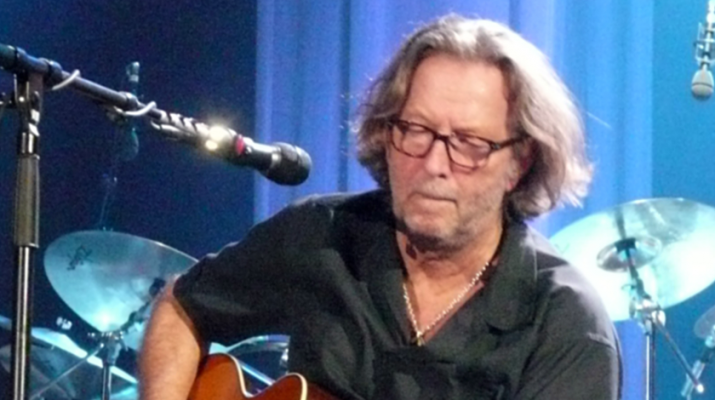Expert: ‘Noise-induced hearing loss is permanent. It typically occurs gradually over months and years’
By Deborah Jeanne Sergeant
Earlier this year, rock and blues musician Eric Clapton, 72, said that he was losing his hearing and was diagnosed with tinnitus — or ringing in the ears.
Noise exposure commonly causes tinnitus.
While one-third of those between 65 and 74 have hearing loss, according to the National Institute on Deafness and Other Communication Disorders in Bethesda, Md., occupational exposure such as Clapton’s can cause hearing damage at younger ages.
Occupational Safety and Health Act (OSHA) states that employers must monitor noise exposure at 85 decibels (db) that occurs for eight hours’ continuous exposure; however, sole proprietors, independent contractors and entrepreneurs often don’t concern themselves with sound safety while working. Certain occupations require ability to hear well while working, which can make wearing hearing protection less desirable.
Christine Graf, audiologist with Amherst Audiological Services in Amherst, said that noise exposure at small, family businesses and sole proprietorships “is an issue often overlooked.”
Graf said that use of hearing protection across the industries in the past several years has increased; however, the rise in freelancers who typically aren’t as concerned about OSHA safety standards may be increasing the number of people who will suffer hearing loss.
In a Forbes article published Jan. 10, contributor David Pridham stated that “freelancers already comprise 35 percent of the U.S. workforce — or 55 million workers in the U.S.— and they are expected to reach 43 percent of the workforce by 2020.”
He also quoted a study by Lawrence Katz of Harvard and Alan Krueger at Princeton which found that “’94 percent of net job growth in the past decade was in the alternative work category. And over 60 percent was due to the [the rise] of independent contractors, freelancers and contract company workers.’ In other words, nearly all of the 10 million jobs created between 2005 and 2015 were freelance.”
While some people envision acute, loud sounds as damaging to hearing, Graf said that long-term exposure to even moderate to loud sounds affects hearing.
“Noise-induced hearing loss is permanent,” Graf said. “It typically occurs gradually over months and years. Individuals often don’t realize how much they’re losing.”
Eventually, the individual notices difficulty in hearing in the higher frequency range in certain situations, like listening to a granddaughter speak in a crowded restaurant, but not in all situations. Or, a person may perceive that more people mumble or that they need to turn up the television louder to hear it well.
At this point, the person may not see the need for a hearing examination.
Although people should protect their hearing during leisure time as well as while working the duration of exposure at work can hasten hearing damage.
“Typically, any type of noise where you would leave that environment and have ringing in the ears, that could indicate there’s the beginning stage of damage,” Graf said.
Phone apps that act as a sound meter can indicate if the noise level could cause hearing damage, based on the sound intensity and duration.
Personal protective equipment (PPE) can help mitigate the effects of occupational noise. Graf said that even small, foam ear plugs can help; however, the larger, over-the-ear muffs offer better protection. Plus, users can easily don them or remove them as they need to.
For musicians, Graf recommends ear plugs that allow a full range of sound, but at a lower level. They cost around $120 to $150. Other specialty plugs work better for communication.
How close the person is to the noise source and any pre-existing hearing loss also make a difference.
“Even shorter loud sounds should be measured,” said Ron D’Angelo, audiologist with Clear Choice Hearing and Balance in Greece and Brighton. “Let’s say it’s not continuous but impulse noises of a short duration. They won’t know unless they have it checked out by a calibrated sound meter over a period of time.”
Michelle Gross, member of the Hearing Loss Association of America Rochester Chapter board of directors, is also certified as an occupational hearing conservationist.
“You can call a sound engineer, but some of it is common sense,” Gross said. “If you run a landscaping business where you’re on a lawn mower and use a weed whacker eight hours a day, that may be 85 db. That’s already the threshold set by OSHA for eight hours.”
Phone apps may also give an idea of sound exposure over the duration of the workday.
While OSHA’s regulation is a general rule, Gross said that some people with more sensitive hearing may be affected by lesser sound.
PPE can reduce the decibels by the number that they’re rated. For example, a 75 db rating would reduce a 100 db sound to the effect of only 25 db.
“If I were in business where there’s loud equipment, I would use my common sense and wear hearing protection,” Gross said.

